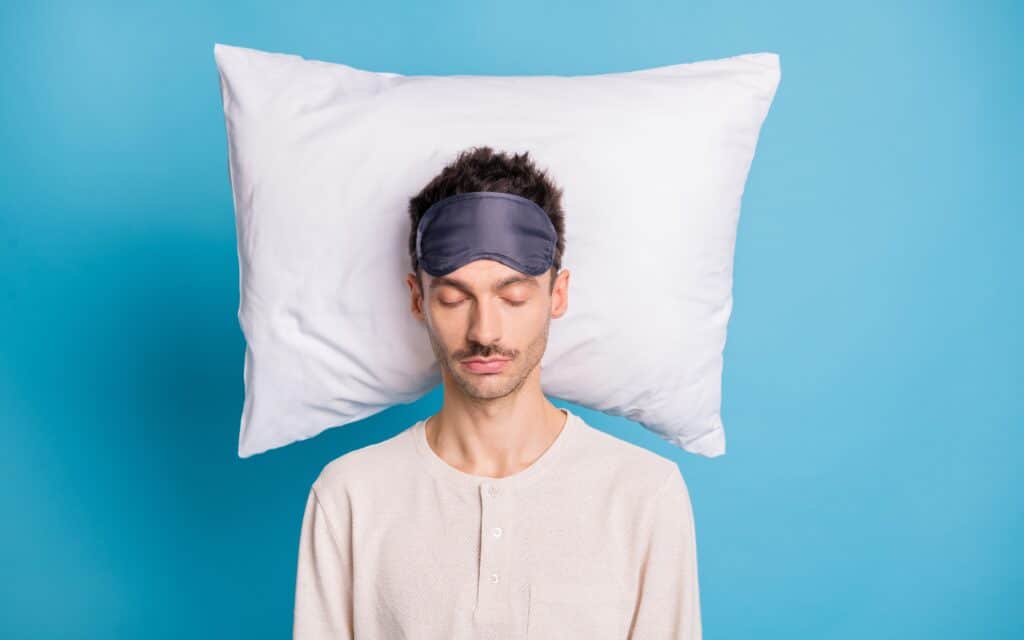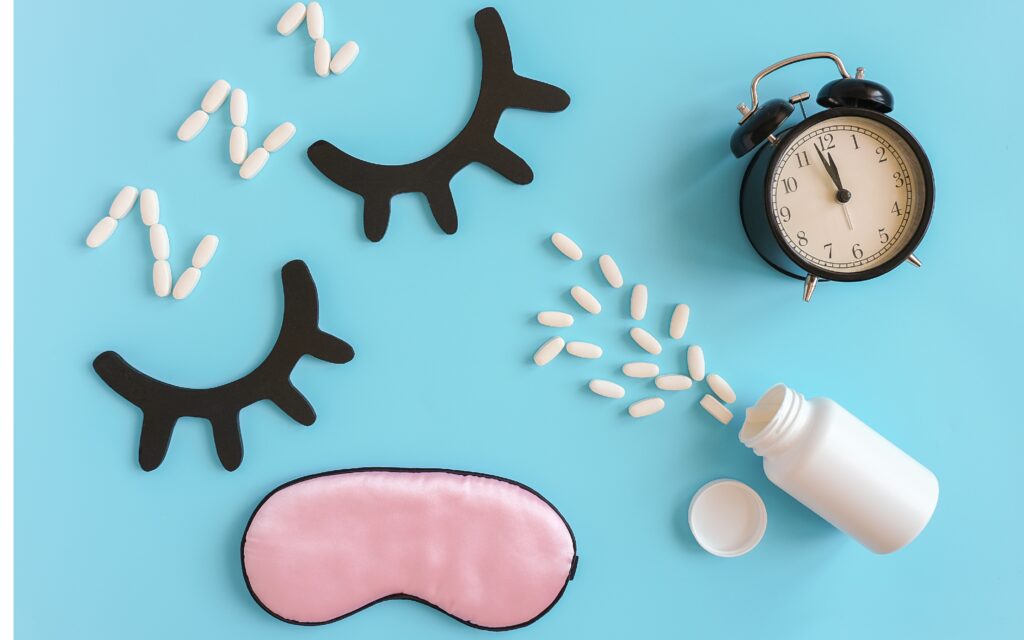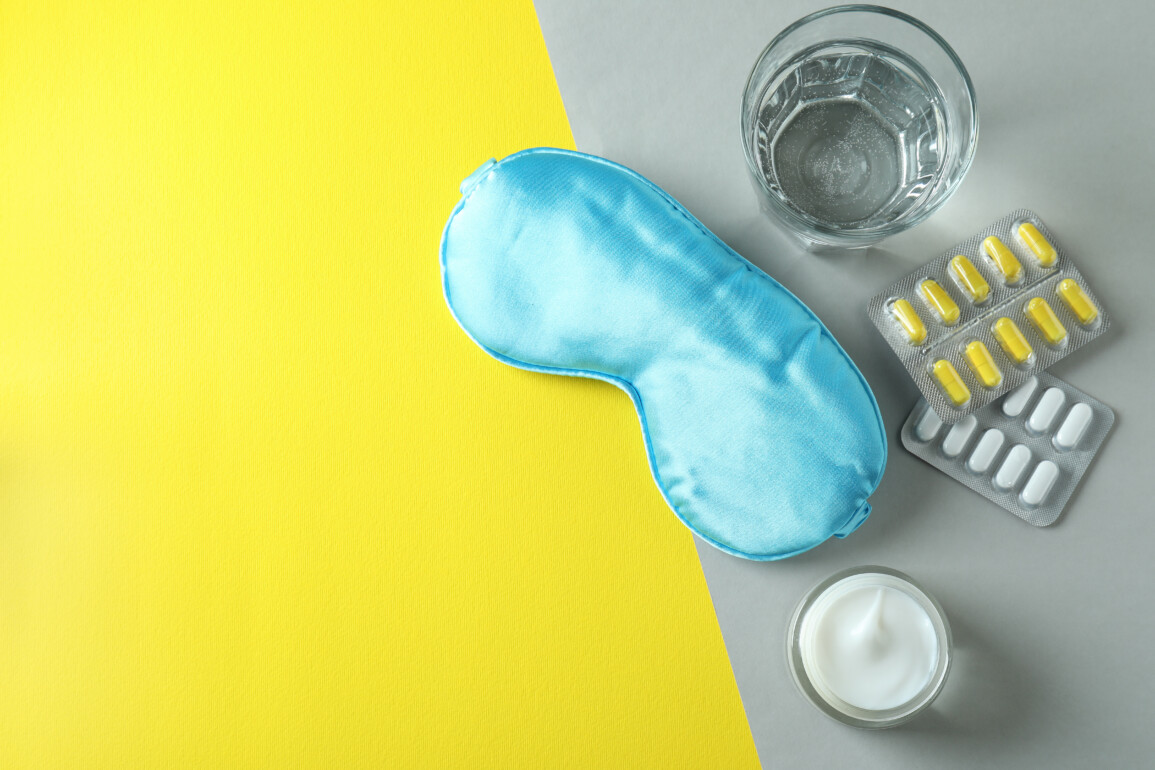Doxepin vs Trazodone for sleep: how do you know which drug is best? Both of these medications are commonly used for the treatment of insomnia and sleep deprivation. However, each substance has a slightly different effect on you, and your body.
If you’ve been dealing with insomnia for some time, your doctor may recommend either trazodone for sleep, or doxepin. While your doctor will usually be able to give you the best advice on which medication to take, it helps to do your research.
Today, we’re going to look at the pros and cons of each medication, to help you weigh up your options as effectively as possible.
What is doxepin for sleep?
Otherwise known as Silenor, it is one of many tricyclic antidepressants used in the treatment of insomnia. Similar in effect to amitriptyline, doxepin has proven itself an effective choice for the treatment of insomnia and sleep disturbances.
Doxepin was originally approved by the FDA for the treatment of depression, back in 1969. However, like many tricyclic antidepressants, this medication quickly became a common choice for the treatment of insomnia too. The effectiveness of Silenor for sleep comes from its antihistaminic effect, which causes drowsiness.
Typically, Doxepin is given much lower doses for sleep, than for the treatment of depression.
Doxepin works by influencing the way the brain absorbs and deals with chemicals like serotonin and norepinephrine. Doxepin also induces drowsiness by affecting the histamine receptors of the body, which play a major role in the sleep-wake cycle. In particular, doxepin influences the H1 receptor, which affects feelings of wakefulness.
The pros and cons of Doxepin for sleep
Studies into the use of Doxepin for sleep show it can improve sleep quality in people with insomnia, when consumed at lower doses. The substance also has very few side effects compared to most sleep medications. Several studies also show doxepin can increase sleep time and reduce the risk of waking during the night.
A systematic review from 2015 found low-dose doxepin caused a small to moderate effect for sleep maintenance and sleep duration. One slight issue with doxepin for sleep, is it can cause feelings of drowsiness the next day.
Although the impact of doxepin only really lasts for about seven hours, meaning you shouldn’t feel too tired after a good night’s sleep, research does suggest some people may feel more tiredness the next day than others.
Pros:
- In clinical trials, Doxepin for sleep is effective at improving sleep quality.
- Doxepin can improve energy levels, appetite, and your overall sense of wellbeing.
- Doxepin is not addictive, unlike some other medications.
- Once your body adapts, you shouldn’t notice side effects.
Cons:
- Doxepin can increase your appetite, which might lead to weight gain.
- Taking Doxepin can make it harder to empty your bladder if you have bathroom issues already.
- You might notice some tiredness the day after taking Doxepin.
- Some people experience affection of the heart rhythm.
- This medication can sometimes interact negatively with other drugs.
Because it’s available in its generic form, Doxepin is also relatively easy to get hold of in most parts of the world, and reasonably affordable. What’s more, it’s considered to be an extremely safe medication for most people.

What is Trazodone for sleep?
Trazodone is a form of prescription medication approved by the FDA as an antidepressant. The medicine can influence the body in a number of ways. One of the most important actions of this medication is to regulate the neurotransmitter serotonin. This helps the brain cells to communicate with each other and influences sleep, mood, appetite, and behaviour.
Even at relatively low doses, Trazodone can help you to feel relaxed, sleepy, and tired, by blocking chemicals in the brain which interact with various neurotransmitters.
Though Trazodone was technically approved for the treatment of depression by the FDA, it has also been used as a sleep aid for many years. The most common dosage for use as a sleep aid is usually between 25mg and 100mg.
The dose of Trazodone for sleep will usually be a lot lower than the dose recommended for depression. This is often the case when tricyclic antidepressants are given for the treatment of sleep conditions.
The pros and cons of Trazodone
When it comes to choosing between Trazodone vs Doxepin, it’s important to be aware of various Trazodone side effects and potential benefits.
The good news is Trazodone is considered to be effective for the treatment of insomnia. A 2017 review of studies into the use of this medication found it was effective for primary and secondary insomnia.
Similar to Doxepin, Trazodone also benefits from a non-addictive formula. This ensures you shouldn’t have any significant negative effect, if you need to stop using Trazodone after a while.
Trazodone also has a few specific benefits, unique to this medication. It can help to improve slow wave sleep, which might be valuable for reducing various forms of age-related mental decline. Some experts also believe this substance may be well-suited to the treatment of insomnia for people with sleep apnea.
While some sleep medications negatively influence sleep apnea, a study into this medication found Trazadone could have a positive impact on sleep arousal.
Unfortunately, Trazodone can cause some side effects, such as lingering sleepiness the next day, dizziness, weight changes, and feelings of overall fatigue.
Pros:
- Proven to be effective for the treatment of insomnia.
- Safer treatment for sleep disorders than others for people with sleep apnea.
- Can be a more effective treatment for people over the age of 65.
- Trazodone can help to promote slow-wave sleep, and improve cognition.
- Has been used for depression and sleep for a long time, so there’s a lot of studies.
- Fewer sexual side effects than many other anti-depressants.
- Many people experience positive changes to their mood, as well as sleep patterns.
Cons:
- May not be as effective for depression as it is for insomnia.
- Can cause side effects like prolonged sleepiness and fatigue.
- Can prompt feelings of dizziness and dry mouth in some people.
- Trazodone can cause changes in weight and weight gain.
- Increased thoughts of suicide and nervousness are possible side effects.

Which is better: Doxepin vs Trazodone for sleep
As you can see, both Trazodone and Doxepin have their benefits and negative elements when it comes to the treatment of insomnia and sleep disturbances.
Both of these medications work in a similar way to improve your slumber. They help to increase feelings of drowsiness and relaxation, which can help you to enjoy a better night’s sleep.
Doxepin side effects are extremely limited, making it a good choice for people who might be susceptible to side effects from other sleeping medications. This substance is also relatively easy to use, and proven to offer excellent support for the treatment of insomnia.
Alternatively, Trazodone has some unique benefits, like the ability to improve slow-wave sleep and minimize REM sleep disturbances. Many people taking Trazodone can see significant improvements in their sleep, and his medication can be suitable for sleep apnea, where other medications aren’t.
Unfortunately, Trazodone, like Doxepin, can also have side effects, such as daytime fatigue, reduced recovery rates for depression, and dry mouth, which may interfere with sleep in the long-term. Additionally, Trazodone’s sedative effects can become less powerful over time with regular use.
Finding the right treatment
As antidepressants often used “off-label” for the treatment of insomnia and sleep disturbances, Trazodone and Doxepin have a lot of similarities. Both have been proven to be effective in improving the duration, quality, and quantity of sleep. They also have side effects to be aware of, if you’re considering using medication for insomnia for the first time.
As with any medical treatment, it’s best to discuss your options with your doctor carefully before you begin treatment. Tell your doctor about all of your other medications, and ensure they’re aware of any additional conditions you may have, such as sleep apnea.
If one of the medications mentioned above doesn’t work for you, your doctor may eventually switch you onto the other, or explore a completely different kind of sleep medication.
In most cases, your medical treatment will also include therapeutic treatments, like sleep hygiene practices and psychological activities intended to improve your relationship with sleep.
To learn more about medical treatments for sleep disorders, check out some of our other guides:
—Is Mirtazapine or Trazodone better for insomnia?
—Does Amitriptyline help you with sleepless nights?
—Quetiapine as a short term medical sleep solution
—Are tricyclic antidepressants an insomnia cure?
Siestio. Sleep Matters.
Medical disclaimer
You must not rely on the information provided on our website as an alternative to medical advice from your doctor or other healthcare professionals. For more information read our full disclaimer here.







